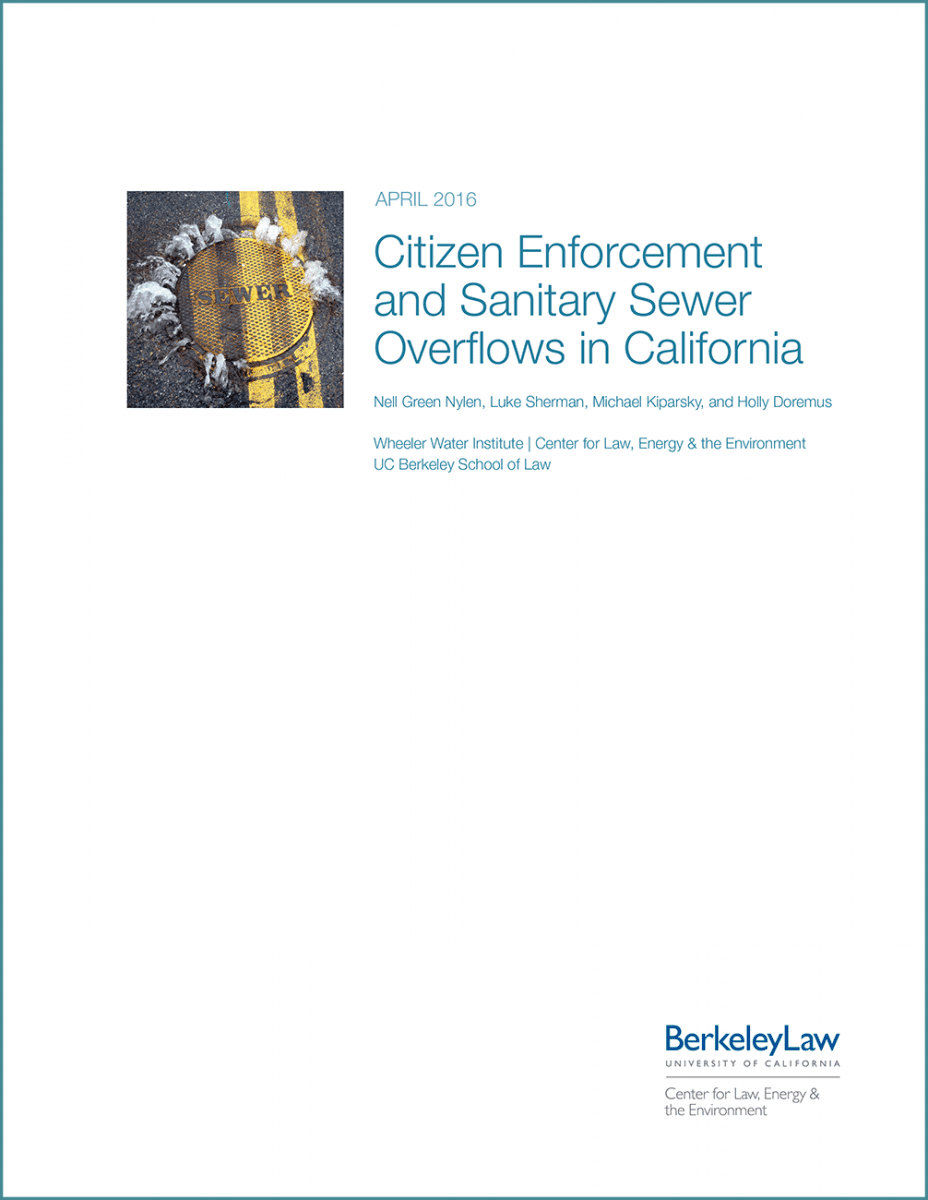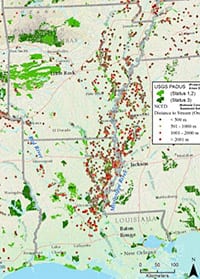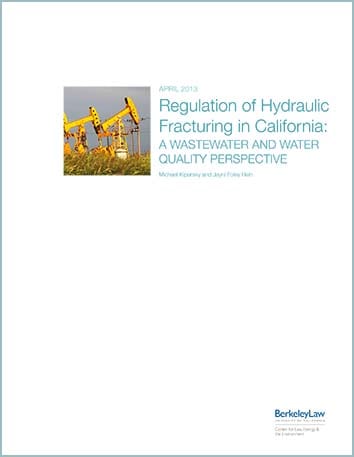From sewage spills to hydraulic fracturing, California faces many water quality challenges with implications for people and ecosystems. Water-dependent ecosystems also face fragmentation and changing conditions.
This initiative uses interdisciplinary research to help California protect water quality and its sensitive and complex ecosystems.
January 2024
Five Guiding Principles for Effective Voluntary Agreements: A Case Study on VAs for Water and Habitat in California’s Bay-Delta Watershed 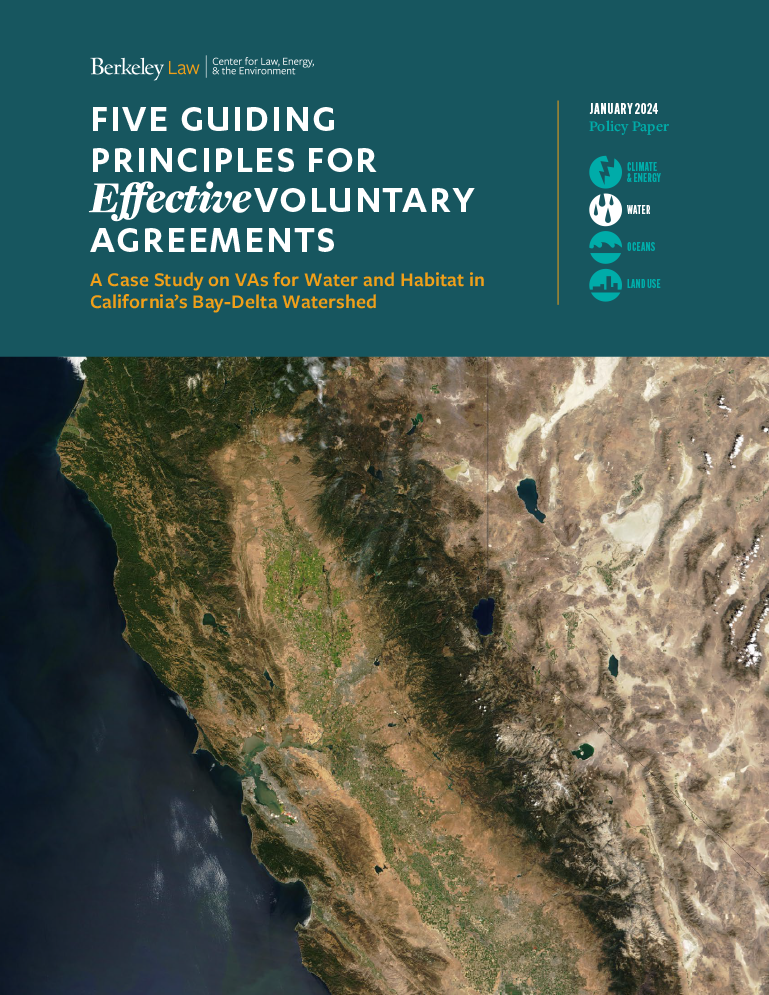
California has increasingly emphasized efforts to develop voluntary agreements (VAs) with water users as a means of achieving regulatory goals in certain watersheds. In theory, a VA can combine the protectiveness of a regulatory backstop with the creativity and flexibility of a negotiated deal to produce outcomes as good as, or better than, those achievable through strict application of regulatory requirements alone. However, reality has not always measured up to this ideal. This policy paper uses the Bay-Delta watershed as a case study to inform five principles to guide the appropriate use and evaluation of VAs.
April 2018
Improving California’s Stream Flow Monitoring System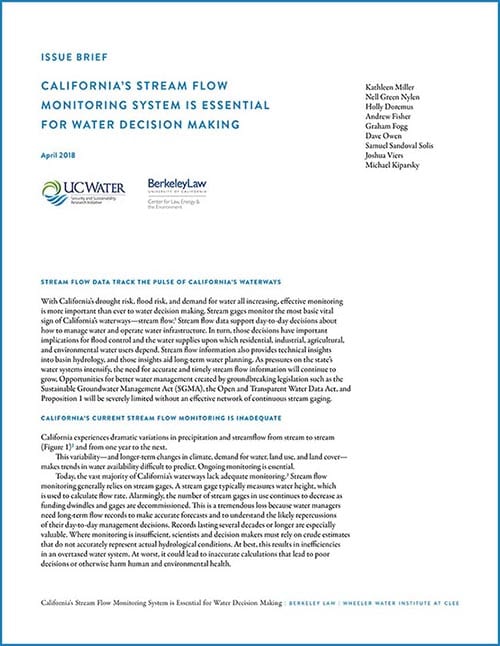
With California’s drought risk, flood risk, and demand for water all increasing, effective monitoring is more important than ever to water decision making. Stream gages monitor the most basic vital sign of California’s waterways—stream flow. Stream flow data support day-to-day decisions about how to manage water and operate water infrastructure—decisions that have important implications for flood control and the water supplies upon which residential, industrial, agricultural, and environmental water users depend.
April 2016
Citizen Enforcement and Sanitary Sewer Overflows
Sanitary sewer overflows (SSOs) that reach waterways or violate discharge permits are considered violations of the Clean Water Act. While government authorities are generally responsible for enforcement of the law, the Clean Water Act’s citizen suit provision allows private individuals or groups to address gaps in government enforcement. Public collection system agencies and environmental groups have widely divergent perceptions of the effectiveness and appropriateness of SSO-related citizen enforcement. Motivated by this controversy and the lack of data-driven analysis of the topic, our report assembles available data to examine the nature and impacts of these citizen enforcement actions in California over the past two decades.
Also see our Legal Planet blog post.
July 2015
Riparian Conservation Network for Ecological Resilience
As we try to protect biological diversity for the future, a perpetual challenge is ensuring that the strategies we adopt today will continue to work in the face of changing conditions. How can we design conservation approaches that will be resilient in the face of environmental challenges that will only become more severe in coming years?Along with our colleagues, we ask whether our network of rivers might provide a solution. We examine the possibility that a Riparian Conservation Network (RCN) could leverage existing riparian corridors by connecting existing protected areas into a more resilient system.
April 2013
Regulation of Hydraulic Fracturing in California: A Wastewater and Water Quality Perspective
Our 2013 report on hydraulic fracturing in California focused on potential water quality impacts, and included a synthesis of the state of knowledge on this then-emerging topic for California, plus discussion of the legal and regulatory context. In the face of scientific uncertainty, our report urged caution, greater transparency, and increased accountability for oil and gas operators. Our work resulted in substantial media coverage and invited testimony. Many of our recommendations were ultimately reflected in SB4.
Also see our Legal Planet blog post.
